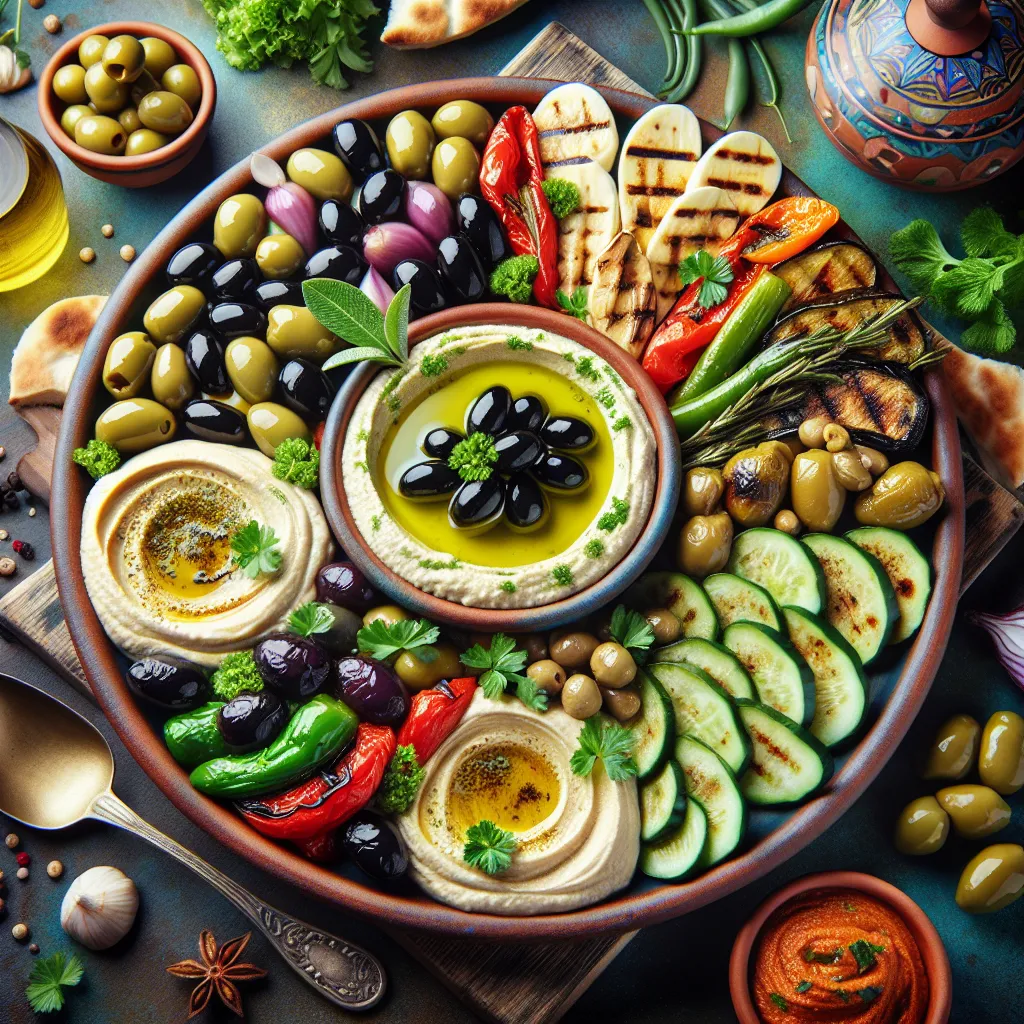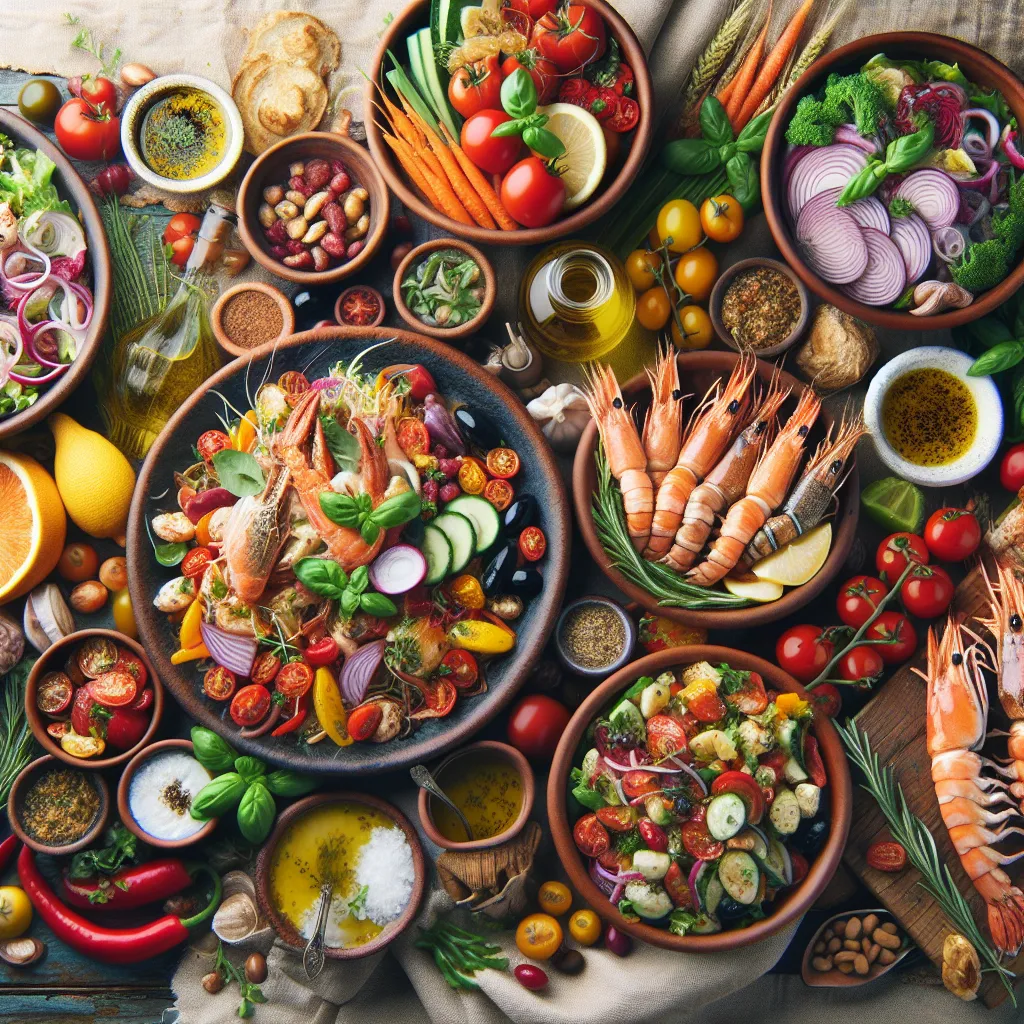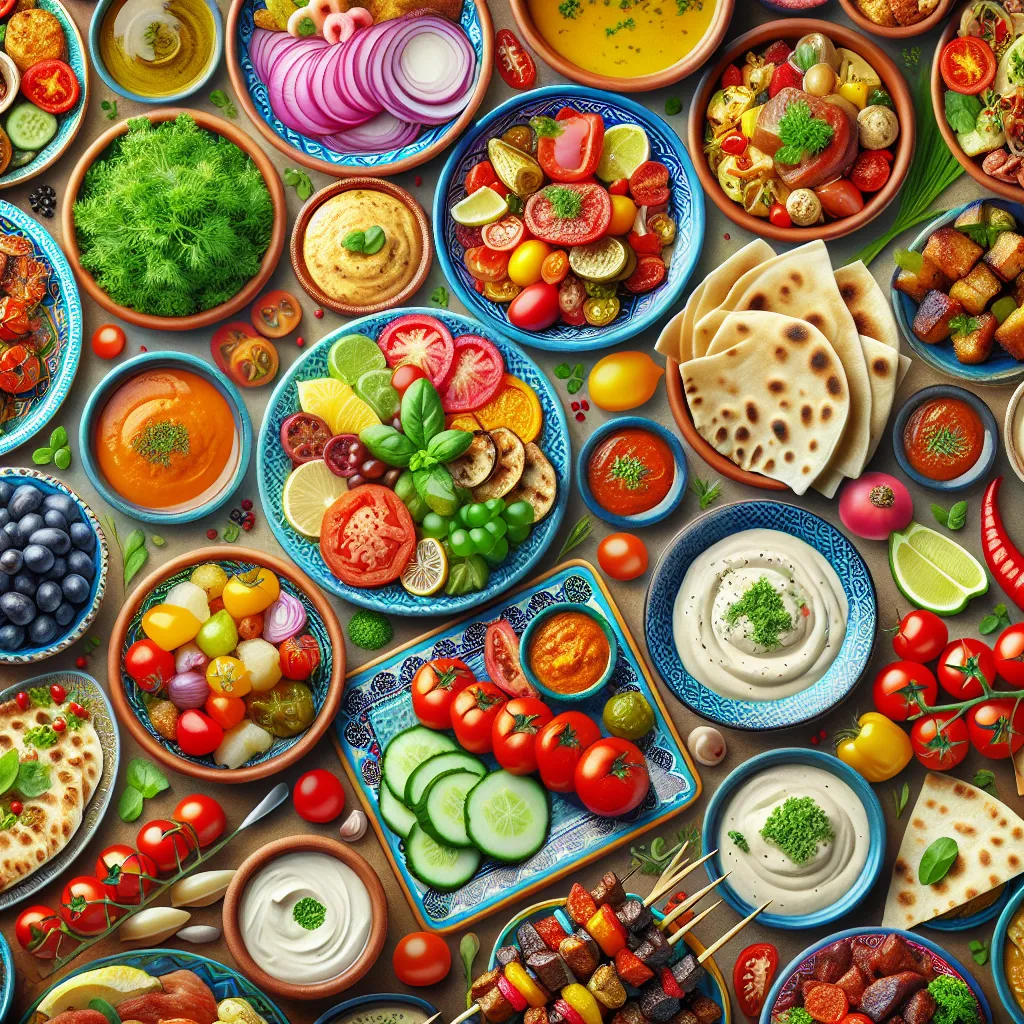The Rich History of Mediterranean Gastronomy
The rich history of Mediterranean gastronomy is a tapestry woven from the traditions of diverse cultures, spanning centuries of culinary innovation. The region’s cuisine reflects the influence of ancient civilizations such as the Greeks, Romans, Phoenicians, and Arabs, each leaving an indelible mark on the culinary landscape. The diversity of ingredients and cooking techniques is a testament to the cross-cultural exchange that has shaped Mediterranean food.
A key aspect of Mediterranean cuisine is its emphasis on fresh, seasonal produce, with an abundance of olive oil, grains, fruits, and vegetables forming the cornerstone of many dishes. The intricate use of herbs and spices, such as oregano, thyme, and saffron, adds depth and complexity to the flavors, showcasing the meticulous attention to detail in culinary practices.
Furthermore, the coastal geography of the Mediterranean has fostered a reliance on seafood, resulting in a plethora of seafood delicacies that are staples of the region’s diet. From the bouillabaisse of Marseille to the seafood paella of Valencia, the Mediterranean’s coastal communities have perfected the art of preparing and savoring the fruits of the sea.
Overall, the rich history of Mediterranean gastronomy is a vibrant tapestry that tells the story of interwoven cultures and their culinary legacies, making it a captivating subject of exploration for food enthusiasts and historians alike.
Top 10 Must-Try Mediterranean Dishes
The Mediterranean cuisine is a treasure trove of flavors and aromas that have captivated food enthusiasts for centuries. From the shores of Greece to the cliffs of Southern Italy, the region offers a tantalizing array of culinary delights that are a testament to its rich history and diverse culture. If you’re a food lover with a passion for exploring new tastes, here are the top 10 must-try Mediterranean dishes that will take your palate on an unforgettable journey.
1. Spanakopita (Greece): This traditional Greek pastry, filled with spinach, feta cheese, and herbs, is a true emblem of Mediterranean cuisine. Its flaky layers and savory filling make it a delightful appetizer or snack.
2. Paella (Spain): Originating from the Valencia region of Spain, paella is a vibrant rice dish infused with saffron and a medley of seafood, chicken, and vegetables. Its colorful presentation and robust flavors make it a must-try for any food enthusiast.
3. Caponata (Italy): Hailing from Sicily, caponata is a delectable eggplant dish cooked with tomatoes, celery, olives, and capers, resulting in a sweet and sour flavor profile that is simply irresistible.
4. Meze (Lebanon and Greece): Meze is a selection of small dishes perfect for sharing, featuring an assortment of flavorful appetizers such as hummus, baba ghanoush, falafel, and stuffed grape leaves. It’s a wonderful way to experience the diverse flavors of the Mediterranean.
5. Couscous (Morocco): This staple dish of Moroccan cuisine features tiny steamed balls of durum wheat semolina, typically served with a rich stew of meat and vegetables. Its fluffy texture and aromatic spices make it a standout dish in Mediterranean gastronomy.
6. Dolma (Turkey): Dolma, which means “stuffed” in Turkish, refers to grape leaves or vegetables stuffed with a tantalizing mixture of rice, herbs, and spices. It’s a flavorful dish that showcases the art of stuffing and rolling in Mediterranean cooking.
7. Tzatziki (Greece): This refreshing Greek condiment is made from yogurt, cucumbers, garlic, and dill, creating a creamy and tangy sauce that pairs perfectly with grilled meats, pita bread, or as a dip for vegetables.
8. Falafel (Middle East): These crispy chickpea fritters seasoned with herbs and spices are a beloved street food across the Mediterranean. Served in pita bread or on their own, falafel is a flavorful and satisfying dish with a delightful crunch.
9. Ratatouille (France): Originating from Provence, ratatouille is a vegetable stew featuring tomatoes, zucchini, eggplant, and bell peppers. Its colorful medley of flavors and fragrant herbs make it a must-try dish for lovers of Mediterranean cuisine.
10. Baklava (Greece and Turkey): This iconic dessert is a sweet indulgence made of layers of flaky phyllo pastry, nuts, and honey or syrup. Its crispy, nutty, and syrupy layers create a decadent finale to any Mediterranean meal.
Exploring the diverse and delectable Mediterranean cuisine is a journey that promises an abundance of savory delights and culinary discoveries. Each dish offers a unique expression of the region’s rich tapestry of flavors, making it a must-try for anyone seeking to expand their culinary horizons.
Unveiling the Secrets of Mediterranean Ingredients
The Mediterranean cuisine is renowned for its delicious and healthy ingredients, which have been the secret to its flavorful dishes for centuries. One of the key elements of Mediterranean cuisine is the abundant use of olive oil. Rich in monounsaturated fats and antioxidants, olive oil is not only a staple in cooking but also a symbol of Mediterranean tradition. Another essential ingredient is fresh seafood, which adds a burst of flavor and nutritional benefits to many Mediterranean dishes. From succulent grilled fish to savory seafood stews, the Mediterranean’s proximity to the sea has made seafood a fundamental part of its culinary identity.
Furthermore, the vibrant array of fresh fruits and vegetables plays a crucial role in Mediterranean cuisine. Tomatoes, eggplants, peppers, and artichokes are just a few examples of the colorful produce that grace Mediterranean tables. These ingredients not only contribute to the region’s renowned salads and vegetable-based dishes but also provide an abundance of vitamins, minerals, and fiber. The judicious use of fresh herbs such as basil, oregano, and rosemary adds a delightful aroma and flavor complexity to Mediterranean dishes.
Beyond these well-known ingredients, the Mediterranean’s cuisine is also celebrated for its use of lesser-known treasures such as capers, anchovies, and preserved lemons. These ingredients add layers of depth and complexity to dishes, creating a truly unique culinary experience. The incorporation of these seemingly secret ingredients is a testament to the intricate and thoughtful approach that characterizes Mediterranean cooking.
In exploring the delights of Mediterranean cuisine, it becomes evident that the region’s ingredients are not just components of a meal but rather the building blocks of a rich culinary heritage. From the refreshing flavors of olive oil and the bountiful gifts of the sea to the abundance of fresh produce and the intriguing depth of lesser-known ingredients, the Mediterranean’s culinary secrets are a treasure trove waiting to be unveiled.




